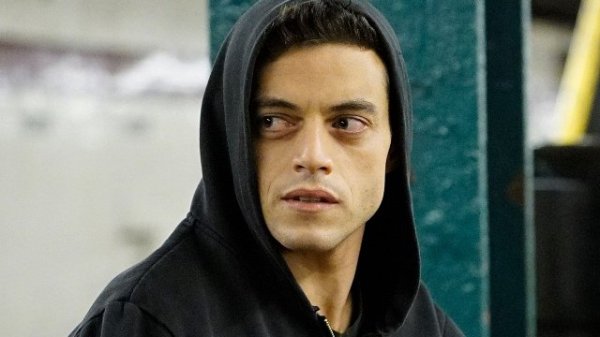Originally published January 24, 2016
I have recently wandered into the series “Mr. Robot.” It is an award winning series and “everybody is talking about it.” The trailers intrigued me, after all, I know something about financial markets and IT. At least the subject matter would be of interest. It is rated L for Language. I have to say there should also be some trigger warnings or something about sexual content. Let’s just say things get intense.
I am watching the catch-up versions so there is an opportunity to catch the creator’s thoughts about each episode as you move through the story. However, catch-up viewing (read binging) does not usually allow time for reflection, so some plot twists do catch you unawares. If I had to say whether or not I “liked” the series, I’m not sure I could answer. But, then, one doesn’t always have to like something to find some value in it. So, here we are. Let’s explore the ambiguity.
The premise of the show introduces what we might call an anti-hero. In some minds he would be the avenging angel, in some the evil clown that destroys the world as we know it. You don’t know just right away, who the real Mr. Robot is. But it does become clear. The season ends with a successful hack that destroys world markets. No debt, no records, no way to retrieve any of it. It is a global revolution that vaporizes trillions of dollars of financial assets (and debt) overnight. I think one of the things that keeps me intrigued enough to check out season two is how the show’s creator handles the real impact of such an event. As terrific as it sounds to wake up tomorrow with no debt, there are very real economic consequences to such an event; consequences that might not work out as planned. The seed of that thought is in the story line. And, again, having watched the mental games written into this series—did it really happen? So, yes, I will probably, for a bit more at least, continue to watch.
There is also the “intense” part. And this is the part that causes me to reserve judgement on the series as a whole. It is either a work of art, or a cheap attempt to manipulate. Sex, in this film, is a function of power. Certain body parts do not make it on screen, but little is left to the imagination. No, I’m not a prude, but the context of these scenes is very edgy and says volumes about the characters involved. What interests me far more is the development of those characters, most specifically the main character.
This is what kept me watching. If you have not seen the first season this will be a spoiler, but because of the amount of time I have spent studying how the human mind works—especially the very intelligent human mind—this story would not let me go.
Elliot is a brilliant engineer that works for an IT security firm. At night he hacks into people’s lives, sometimes confronting them and “encouraging” a change of perspectives. It doesn’t appear that he does this for financial gain—it is usually to stop a crime, protect someone he cares about, or to live vicariously. We learn, as the story progresses, that Evil Corp (a name Elliot assigns it and which has a logo blatantly reminiscent of Enron) was responsible for the death of his father and a friend’s mother. A leak that was more expensive to clean up than to pay off in court. But this isn’t entirely about revenge. We are in Elliot’s head. We are his special friend, the one he goes to when things are not clear. When he needs to say what he is really thinking.
There is great debate on the internet about whether or not Elliot is schizophrenic or subject to some other disorder such a Social Anxiety Disorder. IMDb goes with SAD. Without the benefit of this debate, I was pretty certain of schizophrenia. Not that most of the other characters are all that mentally healthy, (Tyrell is a sociopath) but Elliot is the star. Late in the season it is made clear (if you haven’t already figured it out) that Elliot is Mr. Robot. He is the leader of the group programming a massive hack on financial markets and plotting and negotiating with other hacker groups to make sure that backups are not available to anyone, anywhere. To Elliot, Mr. Robot is his father—even though he does not recognize the delusion as his father. His dead father. And the segment where he recognizes his sister, and realizes that his delusion of Mr. Robot is his father, would be traumatic to anyone who has experienced this issue. The offhand references to his medications and his visits to the therapist are clues, but we have yet to find out why all of this is court ordered.
If it is, indeed, the creator’s intent to portray this individual as a schizophrenic genius—he nailed it. That is the part that is both troubling and intriguing. The layers of mental gaming in this show are intricate, extremely well written, and unsettling. I’ve lived in that world where someone I knew and loved created realities that were every bit as real in his mind as yours are to you. I have learned, and observed, that the mind is an amazing thing. I am hoping that the creators of this show are seeking for that moment when reality collides with the delusion, and the focal point must sort out the chaos. It appears so at this point. So, I continue to watch.
Has anyone else among my friends ventured into this dark, and yet revealing, world? What is our reality, and how much is it truly shared?


No Comments